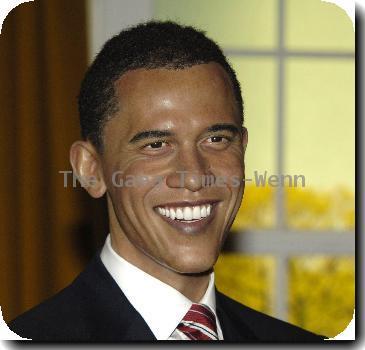Dem leaders hope Obama statement will give vital momentum to stalled health care drive
By Alan Fram, APWednesday, March 3, 2010
Top Dems looking to Obama for health care momentum
WASHINGTON — President Barack Obama is urging Congress to finally push through his massive health care overhaul, freshening it with a handful of Republican ideas in a gesture of bipartisanship but strongly signaling Democrats will go it alone.
The president planned to describe his plan at the White House on Wednesday, a day after he said he was open to melding four Republican ideas into his proposal. In a measure of the partisanship that has dominated the battle, his embrace of those GOP policies drew no plaudits from Republicans; instead, it appeared designed to coax votes from nervous Democratic moderates by demonstrating an attempt to cooperate with the other party.
“I like the idea that the president is working with Republicans and trying to find common ground,” said Sen. Mark Pryor, a centrist Democrat from Arkansas. “I think that’s a good place to be for him, I think that’s what the American people want to see.”
Obama’s effort signaled the climax of a yearlong duel over his premier domestic priority, with the outcome still uncertain. Democratic leaders hope to muscle the overhaul package through Congress by month’s end or sooner over what is expected to be unanimous Republican opposition, teeing up a pivotal issue for the November congressional elections.
In a preview of debates to come, Senate Minority Leader Mitch McConnell, R-Ky., said Wednesday that a Democratic plan to use special rules to speed the measure through the Senate will be “met with outrage” by voters and said Obama was pushing a sweeping bill that the public doesn’t want.
“They’ve had enough of this year-long effort to get a win for the Democratic Party at any price to the American people,” McConnell said on the Senate floor.
But in a nationally broadcast interview, the chairman of the Democratic Party said he expected the bill to pass and said he did not fear GOP attacks in this fall’s congressional elections focused on the measure.
“If they want to run a campaign of bring back the day of kicking people off because of pre-existing conditions, I relish it,” Tim Kaine said on NBC’s “Today” show.
Obama has already made the basics of his plan clear. He would extend health coverage to about 30 million uninsured Americans, leash the insurance industry by banning practices like denying coverage for the ill, expand pharmaceutical benefits for the elderly and give lower-income people subsidies to help them afford coverage. It would be paid for by raising taxes on upper-income Americans and culling savings from Medicare.
In a letter to congressional leaders Tuesday, Obama went further. He said he was exploring GOP proposals for cracking down on fraudulent medical charges, revamping ways to resolve malpractice disputes, boosting doctors’ Medicaid reimbursements and offering tax incentives for curbing patients’ visits to doctors.
The ideas included an experiment in establishing special courts in which judges with medical expertise would decide malpractice allegations. The idea has been criticized by the Center for Justice & Democracy, a consumer group that prefers the current system of awarding damages and said health courts would be “anti-patient.”
Even Republican sponsors of those plans said the inclusion of those proposals would not win their votes.
“That in and of itself doesn’t change my support at all,” said Sen. Charles Grassley, R-Iowa, who has pushed for higher Medicaid payments to doctors but opposes much of what Obama wants to do.
In mid-January, the health overhaul drive seemed to have sputtered out after Republicans captured the special Senate election in Massachusetts. That gave them 41 of the Senate’s 100 votes — just enough to stop Democrats from shoving final legislation through that chamber.
Now, Democrats are aiming toward a two-step approach. The House would approve a sweeping Senate-passed overhaul bill, then both chambers would make changes in it — like making subsidies more generous — by passing a separate measure.
Democrats would use a fast-track process — called reconciliation — for that second bill that would let them approve it with only a majority of Senate votes. Republicans say that process should not be used for such major legislation and accuse Democrats of subverting the rules, but White House chief of staff Rahm Emanuel defended it Tuesday after meeting with top Democrats, calling it “a normal procedure.”
Democrats are also seizing on Sen. Jim Bunning’s single-handed opposition to extending jobless benefits to make the case for reconciliation. Bunning, R-Ky., relented late Tuesday and the stopgap measure passed, but House Democratic leaders planned a news conference for Wednesday afternoon to criticize Senate filibuster rules and make the case for action by a simple majority.
An initial health overhaul bill squeaked through the House in November. The new bill will probably have eased restrictions on using federal funds for abortion — meaning some Democratic supporters may now vote “no.” To compensate, leaders need to find support from three dozen Democrats — mostly moderates — who opposed the bill last fall.
To round up votes, Democratic leaders have been citing polls showing that many voters dislike the overall idea of a health overhaul but favor specific proposals. One presentation by the Democratic firm Lake Research Partners suggests that lawmakers emphasize benefits that would take effect this year, like preventing insurers from denying coverage to those already sick and beginning to improve seniors’ pharmaceutical coverage.
Associated Press writers Ricardo Alonso-Zaldivar, Ben Feller, Charles Babington and Erica Werner contributed to this report.
Tags: Barack Obama, Government Programs, Government Regulations, Government-funded Health Insurance, Health Care Reform, Health Issues, Industry Regulation, North America, Political Issues, Political Organizations, Political Parties, Seniors, United States, Washington











